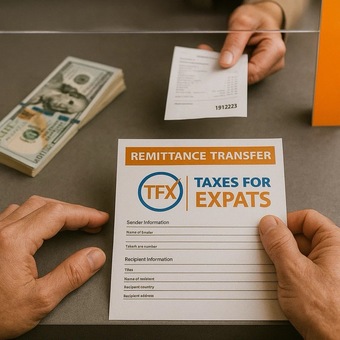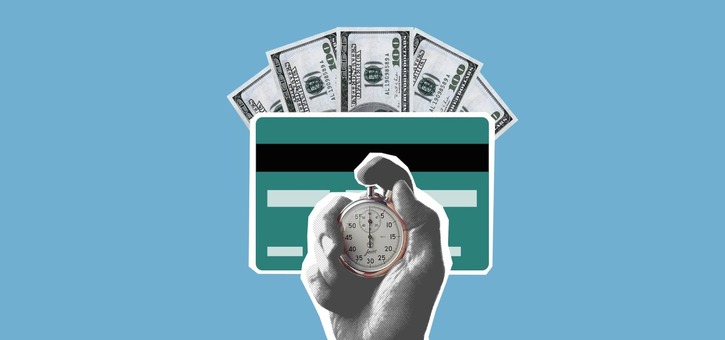Form 1099-MISC: A comprehensive guide
Being a US expat, it's rather important for you to be aware of the tax documents you might need to file yearly.
One of such documents is the Form 1099-MISC - a tax form that is used to report your miscellaneous income you might have received during a tax year.
This type of income includes payments for services performed by a non-employee, such as freelance work, rent, or royalties
What is Form 1099-MISC?
The form is used to report the amount of money received from these types of transactions to the Internal Revenue Service (IRS).
This form is important because it helps the IRS determine the recipient's tax liability and ensure that all taxable income has been reported.
It's crucial that all Form 1099-MISC forms received are accurate and complete, as they play a significant role in determining the recipient's tax responsibilities.
Who gets & must file Form 1099-MISC?
Form 1099-MISC is a tax form required to be filed by a payer if they pay at least $600 in miscellaneous information to a person or business that is not treated as an employee during a tax year.
A payer must provide a copy of the form to the recipient and report the income to the IRS.
Here are several categories of payers who commonly file Form 1099-MISC:
- Businesses: Companies that pay independent contractors for services rendered such as consulting, website design, or graphic design.
- Individuals: Private citizens who pay for services performed by someone who is not their employee, such as a repairperson or a cleaner.
- Renters: People who rent out property, such as a vacation home, and pay rent to others.
- Royalty payers: Companies or individuals who pay royalties for use of a product, patent, or service.
- Prize and award recipients: People or entities that receive prize money, awards, or other non-employee compensation from sources such as sweepstakes, contests, or game shows.
As a US expat, if you receive more than $600 one tax year for services performed as a non-employee, you may receive a Form 1099-MISC.
This form is required to be filed by the person or entity that pays you, and must be received by the recipient by January 31st of the year following the tax year in question.
Pro tip: Keep a copy of the form for your own records and to report the income on your tax return. Failure to file a Form 1099-MISC can result in penalties and interest charges!
What information is included on the 1099-MISC?
Form 1099-MISC contains several key pieces of information, including:
- Your name and address.
- Your taxpayer identification number (TIN), which is either your Social Security number (SSN) or employer identification number (EIN).
- The name and address of the person or entity that paid you.
- The amount of money you received for the tax year.
NB! Check the information on the form for accuracy, as any errors can impact your tax liability. If you find any errors, you should reach out to the person or entity that paid you and request that they correct the information.
Form 1099-MISC preview
How to file Form 1099-MISC: instructions
As a recipient of Form 1099-MISC, you are required to report the income received on your tax return. Here are the steps you need to follow to file the form:
Step 1: Get your hands on the form
You should have received a copy of Form 1099-MISC from whoever paid you by January 31st of the year following the tax year you're filing for. If you haven't gotten it yet, just give 'em a shout and ask for a copy.
Step 2: Check the info
Take a good look at the form and make sure all your info is correct - name, address, taxpayer ID number (TIN), etc. If you spot any errors, just let the payer know so they can fix it.
Step 3: Report your earnings
Time to report your total miscellaneous income on Form 1099-MISC on your tax return. Use the info on the form to figure out how much you owe, and make sure you report it on the right line in your tax return.
Step 4: File the form
Form 1099-MISC should be filed with the IRS by February 28th of the year following the tax year in question, along with a copy of the form to the recipient (or March 31st if filed electronically).
NOTE! If you receive multiple 1099-MISC forms, you'll need to report the total miscellaneous income received on your tax return.
By following these instructions, you can ensure that you're meeting your tax obligations and avoiding potential penalties and interest charges.
If you need assistance with filing Form 1099-MISC, reach out to a tax professional or use tax preparation software to help guide you through the process.
Unsure of each piece to be filed?
Get your free tax consultation
Bonus: Difference between 1099-MISC vs. 1099-NEC
It's common for US expats to confuse Form 1099-MISC with Form 1099-NEC (Nonemployee Compensation).
The key difference between the two forms is that 1099-NEC is used to report nonemployee compensation received during the tax year, while 1099-MISC is used to report a broader range of miscellaneous income.
Make sure you understand which form you should use, as incorrect form selection can result in penalties and interest charges.
FAQ
A 1099-MISC is necessary for reporting income from freelancing, property rentals, or receiving royalties, especially if you've earned $600 or more from these sources in a year.
No, they're different. A 1099 is a series of forms for various income types, while a 1099-MISC specifically reports miscellaneous income.
You can't avoid paying taxes on a 1099-MISC, but you might qualify for certain deductions and credits to reduce your tax liability.
Yes, a 1099-MISC often indicates self-employment, as it's used for reporting non-employee compensation like freelance income.



